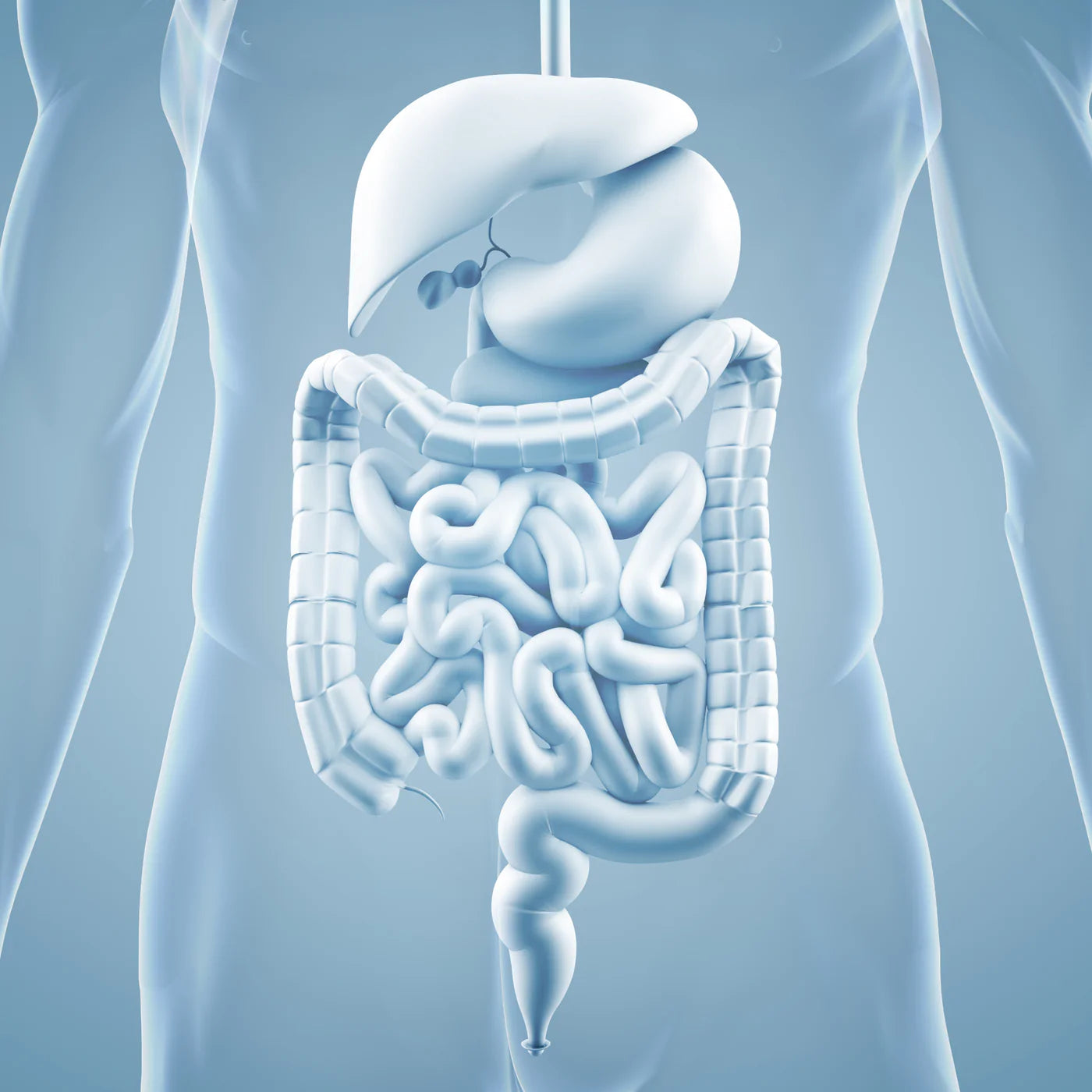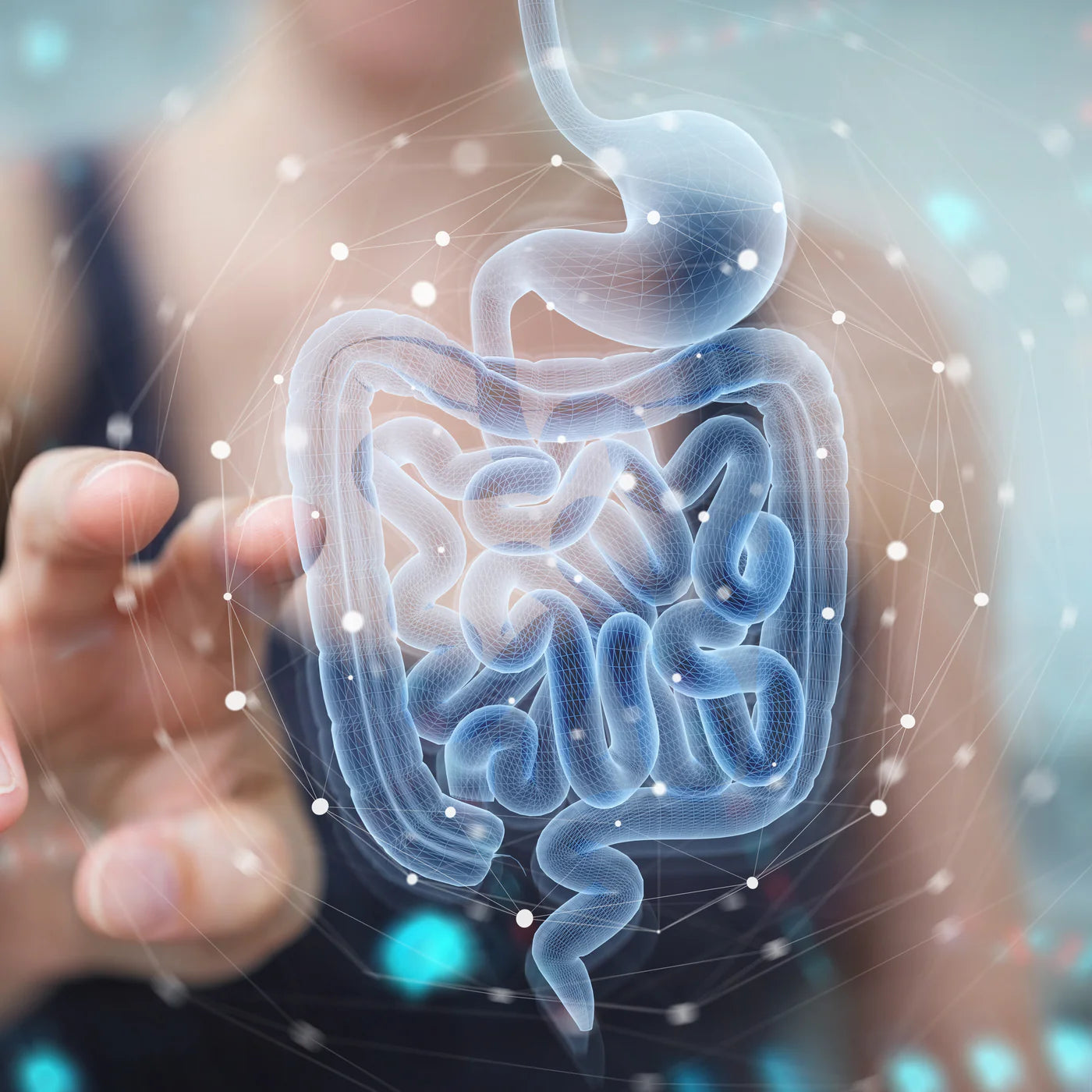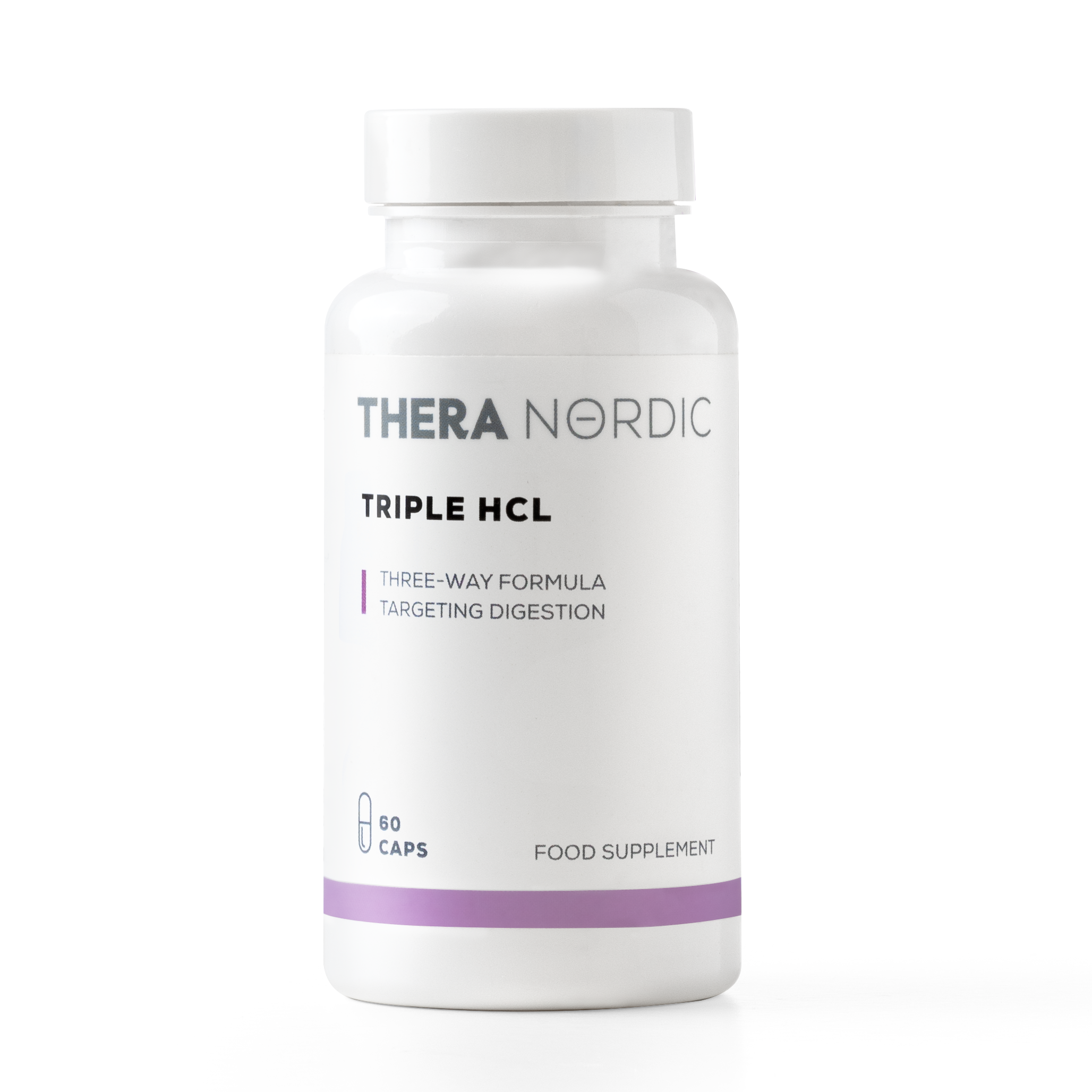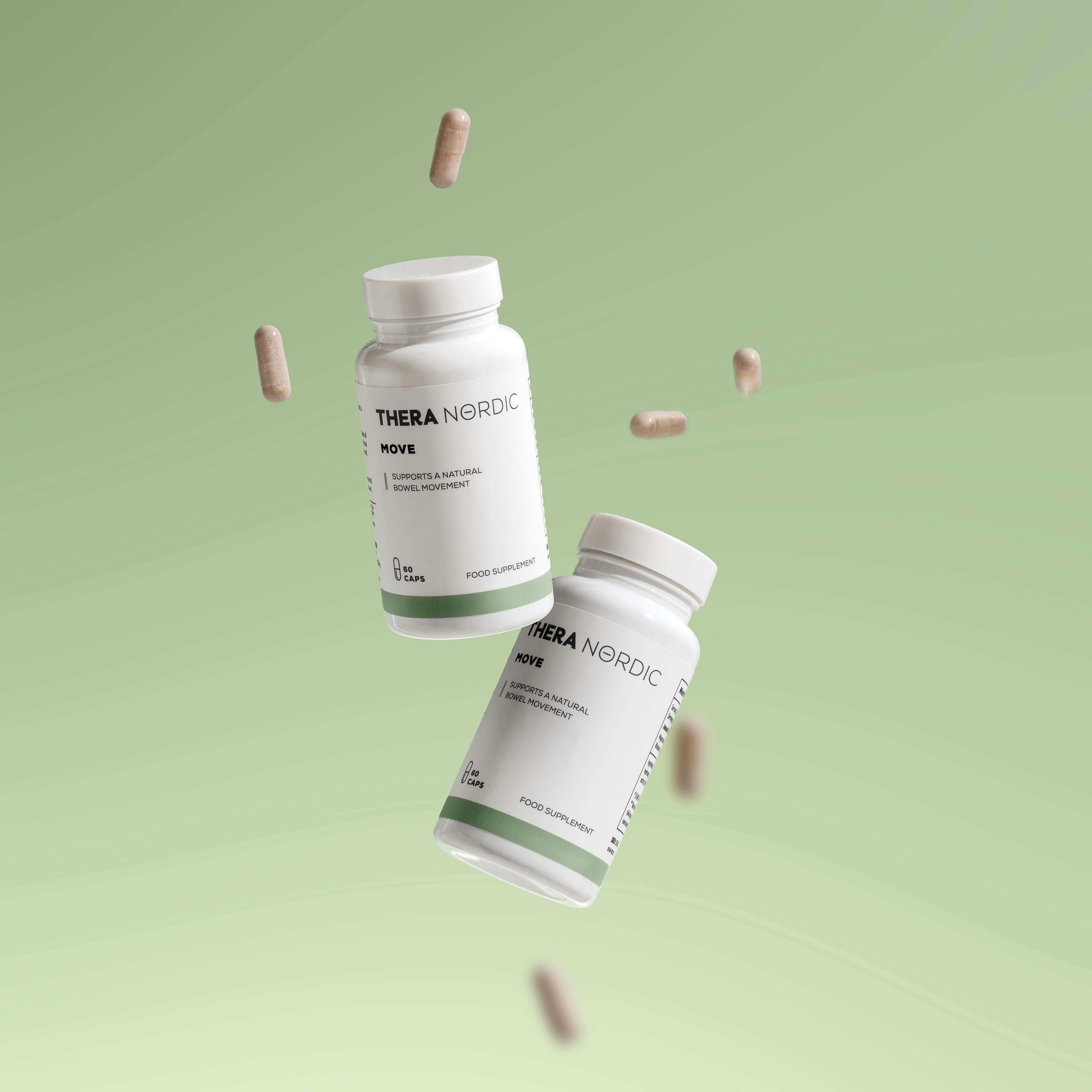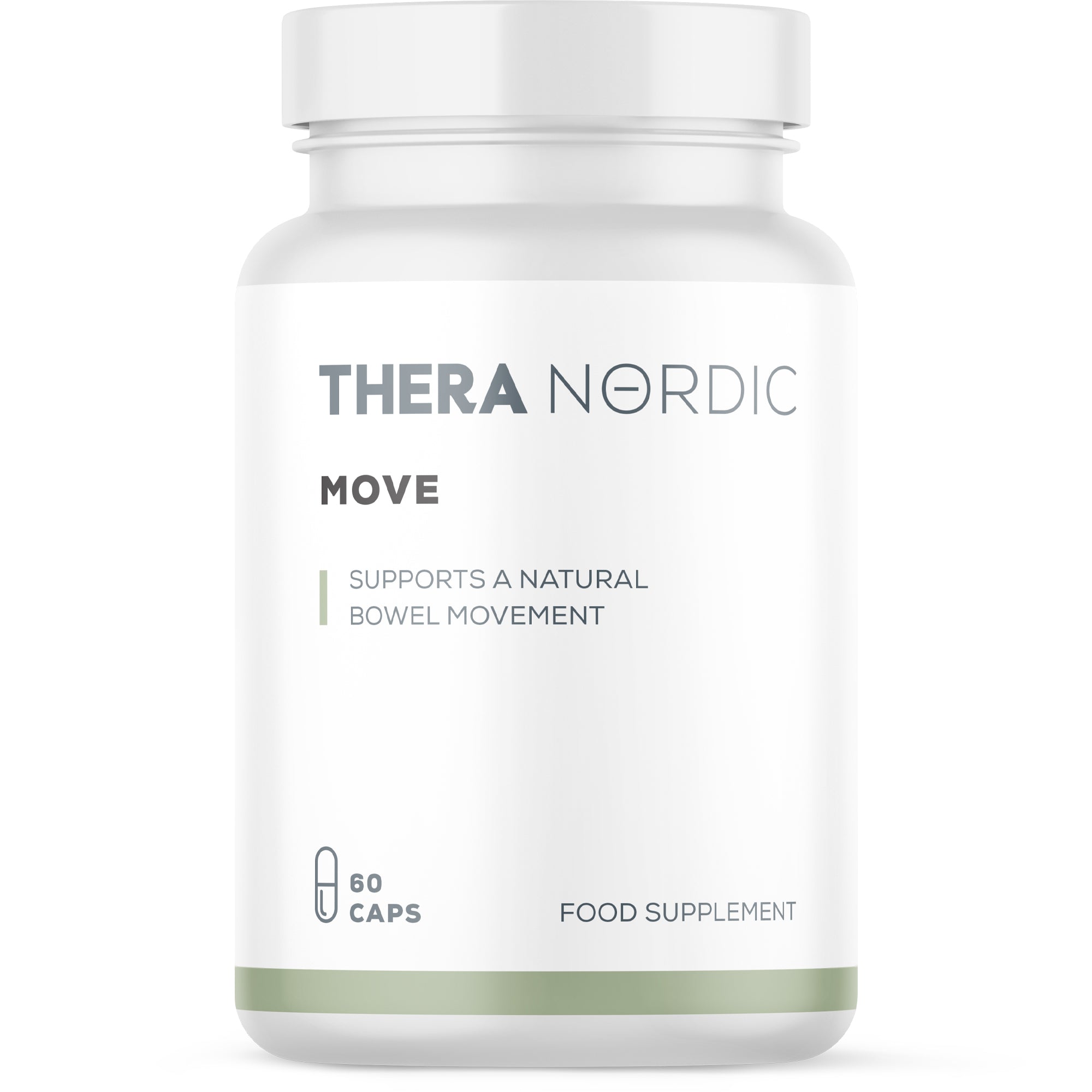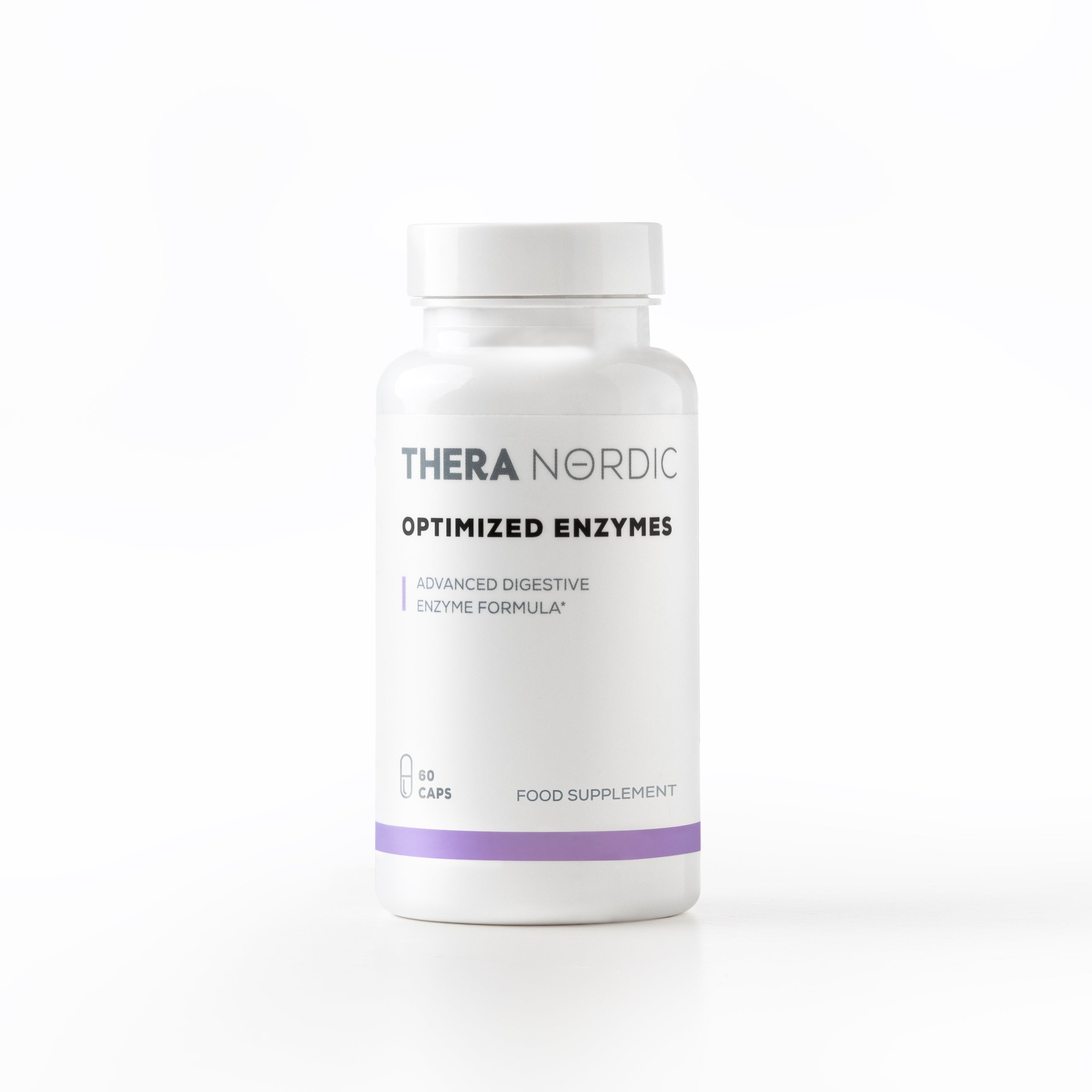
Emma Cannings (THERA Nordic co-founder)
My personal journey
For the last year or so I have noticed my own gut issues change as well as watched many of my friends suffering with the symptoms of perimenopause.
There is a growing body of scientific evidence to show that many of the symptoms of perimenopause and menopause can be improved through better gut health. Here we'll look at some of the common symptoms and the reasons behind them.

Bloating & Gas
Fluctuating oestrogen levels can cause a reduction in cortisol, potentially leading to constipation, bloating, and gas. Fluctuating progesterone levels may slow gut movement, exacerbating bloating.
There are a number of things that you can try including:
- Identifying trigger foods
- Introduce regular aerobic exercise
- Consider herbal remedies
- Take a prebiotic fibre
- Use targeted supplements to boost your digestive health
- Staying hydrated is crucial

Constipation
The fluctuating oestrogen and progesterone levels can also lead to constipation.
To address constipation, looking at your diet is the first step. But consider these steps to help:
- Double your daily fibre intake
- Take the right fibre (grains, fruits, vegetables, nuts, and seeds are a great source of fibre)
- Consider supplementing your fibre
- Drink one more litre of water per day

Acid Reflux & Heartburn
During perimenopause and menopause, hormonal fluctuations can weaken the muscles, including the valve at the top of the stomach, which normally keeps stomach contents in place after eating.
Additionally, decreasing hormone levels often lead to reduced stomach acid production, which may be mistaken for over-acidity. This can exacerbate symptoms, as insufficient stomach acid fails to adequately break down meals, leading to fermentation and gas production, which in turn increases pressure on the stomach valve, causing acid reflux. In extreme cases this can lead to GERD (see below).

Gastroesophageal Reflux Disease (GERD)
Gastroesophageal Reflux Disease (GERD, or officially GORD in the UK) has a very clear connection to perimenopause and menopause.
Symptoms include:
- Regular Acid Reflux
- Unpleasant Sour Taste in the Mouth
- Heartburn
- Trouble Swallowing
- Persistent Cough
Stay up to date
Menopause articles from THERA Nordic

Understanding GERD in Perimenopause and Menopause: Symptoms and Solutions
Read Article >
Navigating Perimenopause and Menopause: Understanding Constipation, Bloating, and Gas
Read article >



